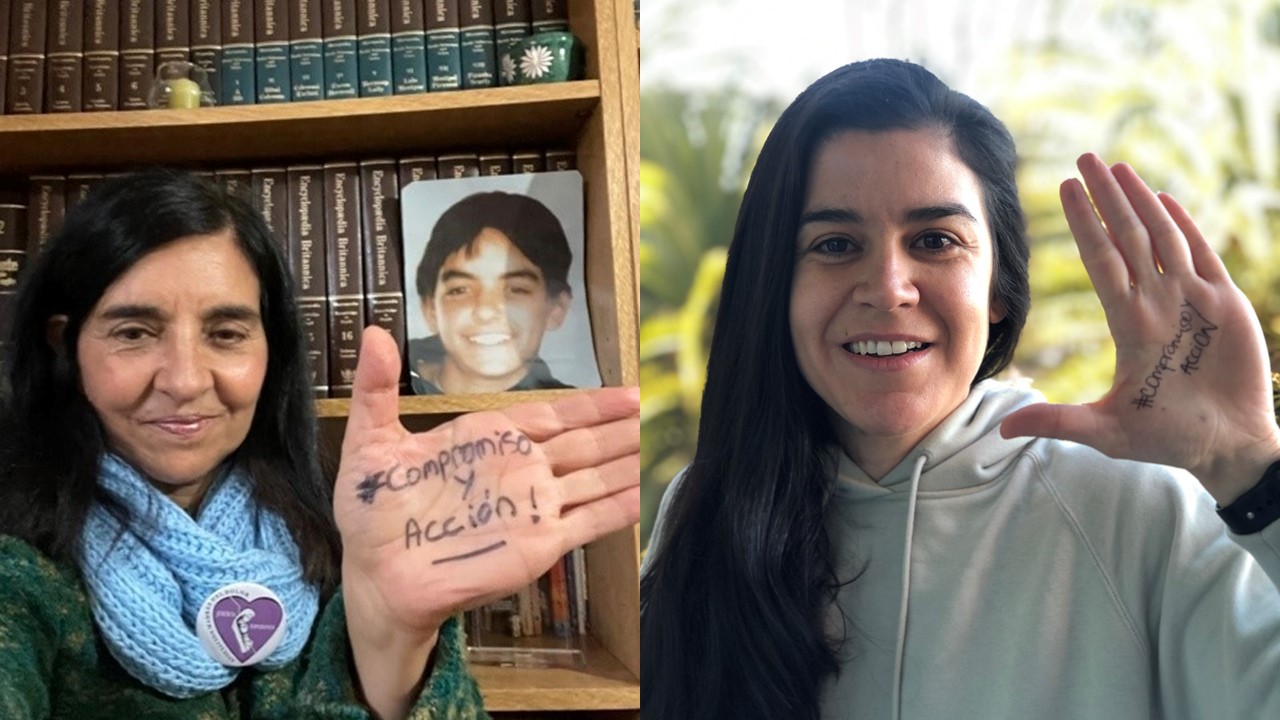
On 31 August 2022, the Alliance launched its Latin America Chapter. The Chapter was a result of an identified need for a stronger regional approach and the desire of Alliance members in the region to benefit from closer collaboration.
For this article, we sought the perspectives of some of those involved in shaping the Chapter. Florencia Lambrosquini is the Latin America Chapter Program Assistant within the Alliance Secretariat team. Viviam Perrone, is part of the advisory committee for the Chapter, as well as an Alliance Board member and founder of Alliance member NGO Asociacion Madres del Dolor.
Viviam: “The Latin America Chapter is important because there are many NGOs in this region that are working hard on road safety but have little contact with each other. This Chapter should be a bridge for our work so as to share experience which can not only help save time and work but specially avoid road crashes and its consequences.”
Florencia: “A lot is happening in Latin America, shown in recent policy successes in Mexico, Colombia, and Chile. However, there is much more needed to strengthen policy, investment, and infrastructure. Enforcement is critical because as laws improve, but they must be effectively implemented. Speed limits are being reduced around the continent, but many still don’t meet international recommendations. Safer and more accessible public transportation and infrastructure for active mobility is needed. Furthermore, increased motorization is having a devastating impact both on road traffic injuries and the environment. NGOs are critical to raising and pushing forward these issues. This is why the Chapter is so relevant. NGOs are already achieving fantastic advocacy successes but Latin America needs more if we are to achieve the 2030 target.“
Florencia: “As we saw in the Call to Action consultation process, motorcycle fatality rates are devastating our countries. It is a serious problem and we need to work in different areas, with a multi-sectoral approach. One of the main problems we need to address in Latin America is the lack of good, safe, and accessible public transport. It is key. So is infrastructure for active mobility. We are suffering the consequences of increasing motorization. This is not only a safety problem. It is also a problem of health, climate change, inequity, poverty, etc.”
Viviam: “The most pressing issues are connected with justice for victims and their families, legislation, gender equality. We share a history so most countries have a similar culture. That is why it helps more for us to share statistics and work carried out in the region if we want to influence policy makers.”
Viviam: “My hope is for the chapter to be a place where NGOs can express success, failures and plans for future aims. Together we will have a common voice and we can learn what is being done in neighbouring countries. I´d like to see it achieve changes in the region based on sharing our knowledge, strength and experience.”
Florencia: “The Chapter will support NGOs to maximize their impact. It will build capacity, focusing on themes that are most relevant to Latin America and needs identified by member NGOs in the region. It will encourage idea sharing so that what has worked in one country can be replicated in another. It will translate global campaigns to regional context. It will strengthen relationships and joint working between members both in- and inter-country. We have seen in Mexico and other countries how working in coalition has brought stronger results, let’s see how we can build on that around the continent. Moreover, it will be a place where NGOs can help, encourage, and support each other. We are adapting the work plan now – based on the inputs from the launch event discussions and look forward to sharing the ideas that have come forth from that.“